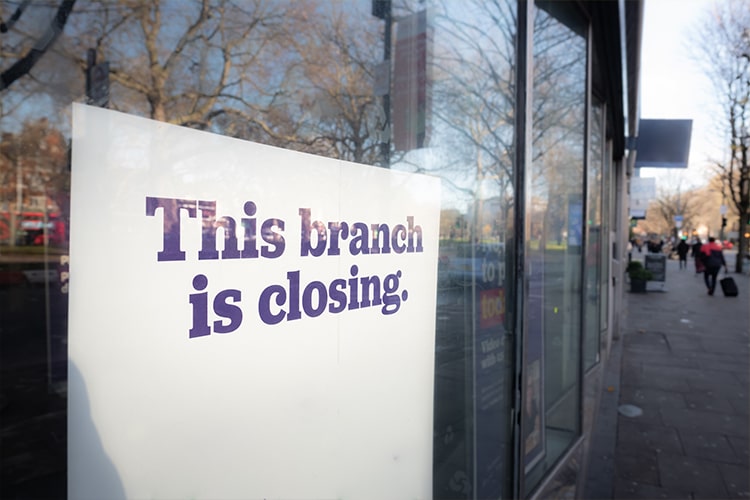Home »
December 19, 2022
The Rise in Bank Branch Closures: How Retailers Can Leverage Technology to Meet Consumer Demand
Cash Management Systems
Cash Recyclers
Smart Safes

The banking industry is under pressure as consumers shift their spending habits to tap into emerging technological advancements. This has forced many banks to consolidate and close brick-and-mortar locations across the country. Between 2017 and 2021, 9% of bank branches closed, a total of 7,500 branches nationwide. This trend will likely continue as banks focus their resources on online and mobile banking services that are more convenient for customers. The Covid-19 pandemic also accelerated closures, and low to moderate-income neighborhoods were the hardest hit. In these areas, access to banks is vital, and closures have led to inequities in bank services. Bank closures have made it difficult for small business retailers to deposit cash into their accounts. As a result, they are forced to either keep their cash on hand, which is incredibly risky or travel long distances to get to another branch. Banks and businesses face these challenges that make it difficult for them to operate and grow, and they must find ways to resolve such issues.
How Retailers Can Adapt
As bank closures increase, it becomes more difficult for small businesses in rural areas to access their accounts and make regular deposits. However, retailers can take advantage of this opportunity by utilizing technology to fill the gap left by a declining bank branch presence. For example, some retailers have begun to offer in-store bill payment and money transfer services. Another effective option available to small business retailers who need to make regular deposits is to install smart safes.
Smart Safe Technology
Retailers using smart safes can accept cash payments without worrying about making a trip to the bank to deposit their cash. Smart safes facilitate the depositing of cash into bank accounts faster and more convenient, allowing retailers to secure their earnings. With smart safes, cash deposits can be credited to the retailer’s bank account, typically by the next business day. The smart safe sends an electronic record of that day’s cash deposit to the retailer’s bank. The deposit is then credited to the store’s account, negating the need for store personnel to travel to a physical bank branch to make the deposit. These highly intelligent devices leverage a robust combination of hardware and software to provide security for cash and other valuables. When retailers adopt smart safe technology, the effect of bank branch closures becomes moot. Smart safes have proven to be an effective tool for retailers to enable an environment based on greater security and cash transparency, while providing faster access to their working capital. Furthermore, smart safes can be monitored remotely, so retailers can keep track of their cash from the comfort of their own homes, while traveling, and even when their store is closed.
Retailers Must Leverage New Technology
While bank branch closures may be inconvenient, the trend will likely continue, and retailers and small businesses need to adapt to the new normal. It is important to remember that small businesses are the backbone of the economy. They provide essential goods and services to their communities and adapting to newer technology will help them meet the demands of their customers. High-end technology like smart safes will provide all the convenience and security such retailers need.
Topics
Cash Management
Smart Safes
Cash Recyclers
Markets



